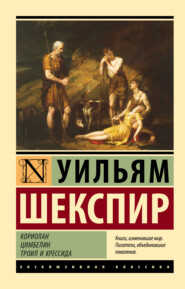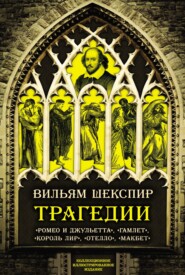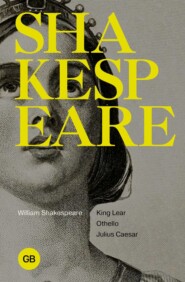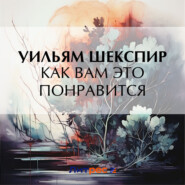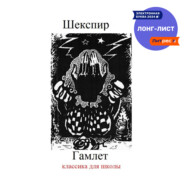По всем вопросам обращайтесь на: info@litportal.ru
(©) 2003-2025.
✖
Romeo and Juliet / Ромео и Джульетта
Настройки чтения
Размер шрифта
Высота строк
Поля
Let me stand here till thou remember it.
Juliet
I shall forget, to have thee still stand there,
Remembering how I love thy company.
Romeo
And I’ll still stay, to have thee still forget,
Forgetting any other home but this.
Juliet
’Tis almost morning; I would have thee gone,
And yet no farther than a wanton’s bird,
That lets it hop a little from her hand,
Like a poor prisoner in his twisted gyves,
And with a silk thread plucks it back again,
So loving-jealous of his liberty.
Romeo
I would I were thy bird.
Juliet
Sweet, so would I:
Yet I should kill thee with much cherishing.
Good night, good night. Parting is such sweet sorrow
That I shall say good night till it be morrow.
[Exit.]
Romeo
Sleep dwell upon thine eyes, peace in thy breast.
Would I were sleep and peace, so sweet to rest.
Hence will I to my ghostly Sire’s cell,
His help to crave and my dear hap to tell.
[Exit.]
Scene III
Friar Lawrence’s Cell. Enter Friar Lawrence with a basket.
Friar Lawrence
The grey-ey’d morn smiles on the frowning night,
Chequering the eastern clouds with streaks of light;
And fleckled darkness like a drunkard reels
From forth day’s pathway, made by Titan’s fiery wheels
Now, ere the sun advance his burning eye,
The day to cheer, and night’s dank dew to dry,
I must upfill this osier cage of ours
With baleful weeds and precious-juiced flowers.
The earth that’s nature’s mother, is her tomb;
What is her burying grave, that is her womb:
And from her womb children of divers kind
We sucking on her natural bosom find.
Many for many virtues excellent,
None but for some, and yet all different.
O, mickle is the powerful grace that lies
In plants, herbs, stones, and their true qualities.
For naught so vile that on the earth doth live
But to the earth some special good doth give;
Nor aught so good but, strain’d from that fair use,
Juliet
I shall forget, to have thee still stand there,
Remembering how I love thy company.
Romeo
And I’ll still stay, to have thee still forget,
Forgetting any other home but this.
Juliet
’Tis almost morning; I would have thee gone,
And yet no farther than a wanton’s bird,
That lets it hop a little from her hand,
Like a poor prisoner in his twisted gyves,
And with a silk thread plucks it back again,
So loving-jealous of his liberty.
Romeo
I would I were thy bird.
Juliet
Sweet, so would I:
Yet I should kill thee with much cherishing.
Good night, good night. Parting is such sweet sorrow
That I shall say good night till it be morrow.
[Exit.]
Romeo
Sleep dwell upon thine eyes, peace in thy breast.
Would I were sleep and peace, so sweet to rest.
Hence will I to my ghostly Sire’s cell,
His help to crave and my dear hap to tell.
[Exit.]
Scene III
Friar Lawrence’s Cell. Enter Friar Lawrence with a basket.
Friar Lawrence
The grey-ey’d morn smiles on the frowning night,
Chequering the eastern clouds with streaks of light;
And fleckled darkness like a drunkard reels
From forth day’s pathway, made by Titan’s fiery wheels
Now, ere the sun advance his burning eye,
The day to cheer, and night’s dank dew to dry,
I must upfill this osier cage of ours
With baleful weeds and precious-juiced flowers.
The earth that’s nature’s mother, is her tomb;
What is her burying grave, that is her womb:
And from her womb children of divers kind
We sucking on her natural bosom find.
Many for many virtues excellent,
None but for some, and yet all different.
O, mickle is the powerful grace that lies
In plants, herbs, stones, and their true qualities.
For naught so vile that on the earth doth live
But to the earth some special good doth give;
Nor aught so good but, strain’d from that fair use,






